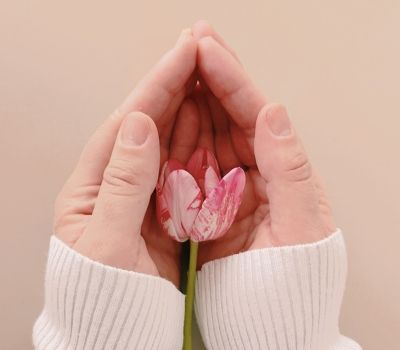
Cheryl Groskopf, LMFT, LPCC
Holistic Anxiety, Trauma, and Attachment Therapist in Los Angeles
How Family Dynamics Shape Emotional Health: An LA Therapist's Perspective
Growing up in a family where emotions aren’t openly expressed can significantly impact your emotional development and relationships. As an attachment therapist and somatic therapist in Los Angeles, I see how these early experiences shape lives. In this blog, we’ll dive into the impact of such family dynamics on your emotional health and nervous system, and how therapies like somatic therapy can help you heal and build healthier relationships.
Here’s what we’ll cover:
- The role of emotional modeling in families
- How sibling dynamics shape your emotional health
- Coping mechanisms from emotionally restrictive families
- The connection between emotional suppression and physical health
- Effective therapy techniques to address these issues
Understanding these patterns can help improve your emotional well-being and relationships. With the right support and strategies, healing is possible! If you’re struggling with these issues, I’m here to help. Contact me today to start your journey with attachment and somatic-based therapy in Los Angeles. Let’s work together to transform your emotional health and build the life you deserve.
Somatic Therapy for Better Emotional Expression in Los Angeles
Interpersonal Relationships and Emotional Communication
Ever wondered why you keep picking partners you know won’t work out long-term? It’s not just bad luck or poor judgment. There’s a whole mix of psychological, biological, and evolutionary factors at play. Understanding these can help shed light on why you might be stuck in this cycle. As an attachment therapist in Los Angeles, I’m here to help you break free from these patterns and find the lasting, fulfilling relationships you deserve. Let’s dive into why this happens and how you can change it for the better.
Emotional Expression and Modeling
Lack of Emotional Modeling: Parents who are not open about their emotions provide limited examples for their children on how to identify, express, and manage their own feelings. This often leads to difficulties in emotional regulation, where children might either suppress their emotions or express them inappropriately. Without a model for healthy emotional expression, these individuals can struggle with understanding and managing their own emotions throughout life.
Perceived Emotional Unavailability: In families where emotions are not openly discussed, children may perceive that expressing emotions is undesirable or even unacceptable. This belief can hinder their ability to form deep, emotionally intimate relationships later in life. They may internalize the idea that vulnerability is a weakness, preventing them from fully connecting with others.
Sibling Dynamics And Roles
Competition for Emotional Attention: In a family with multiple children and limited emotional expression, siblings might compete for the slightest sign of emotional attention available from their parents. This competition can intensify feelings of inadequacy or neglect, as children really want and need recognition and validation from their caregivers. This can lead to sibling rivalry and long-term feelings of insecurity.
Role Adoption: Children in such families often adopt specific roles to cope with the emotional environment and gain attention. These roles, such as the achiever, the peacemaker, or the rebel, can shape their self-perception and behavior in adult relationships. For example, the “achiever” might continuously strive for success to gain validation, while the “peacemaker” might avoid conflict at all costs.
Coping Mechanisms and Relational Patterns
Independence and Self-Reliance: Growing up with emotionally reserved parents often teaches children to rely heavily on themselves. While independence is a valuable trait, excessive self-reliance can impede the formation of supportive relationships. Mutual vulnerability is key to deep connections, and those who are overly self-reliant might struggle with letting others in.
Avoidance of Vulnerability: A discomfort with emotional expression can lead to avoiding vulnerability in relationships. This might manifest as an avoidant attachment style, where individuals keep others at a distance to protect themselves from potential emotional exposure or rejection.
Interpersonal Relationships and Communication
Communication Challenges: Without open emotional communication in their formative years, individuals might find it difficult to express their needs, desires, and feelings effectively. This can lead to misunderstandings, unmet needs, and conflicts in relationships. Learning to communicate openly and honestly is crucial for healthy relationships.
Seeking or Creating Emotional Distance: People from emotionally restrictive backgrounds might unconsciously seek out partners or create dynamics that maintain emotional distance. This can mirror the emotional climate of their upbringing, perpetuating a cycle of emotional unavailability.
How This Impacts You

Holistic Therapy Services: Securing Attachment in Los Angeles
Therapy & Healing
Addressing these issues in therapy involves understanding the impact of family dynamics on emotional development and current relationship patterns. Therapy can offer strategies for:
Developing Emotional Awareness: Learning to identify and understand one’s own emotions more clearly is the first step toward healing. This involves recognizing the physical sensations associated with different emotions and understanding their origins.
Improving Emotional Expression: Practicing ways to express emotions constructively and authentically can help individuals build deeper connections. This might involve role-playing exercises, journaling, or guided conversations in therapy.
Building Vulnerability: Gradually increasing comfort with vulnerability can enhance relational satisfaction. This process involves taking small risks in expressing emotions and experiencing the positive responses that can come from being open.
Revising Relational Expectations: Reflecting on and adjusting expectations for relationships based on new understandings of healthy emotional intimacy and communication is crucial. This might involve redefining what it means to be in a supportive and loving relationship.
Somatic Therapy for nervous system regulation
Impact on the Nervous System and Adult Relationships
Hypervigilance: Growing up in an environment where emotional expression is discouraged can lead to a hypervigilant nervous system. This heightened state of alertness can make intimate relationships stressful and anxiety-inducing, as individuals become overly sensitive to cues of rejection or disapproval.
Dysregulated Stress Response: The inability to express emotions freely and the potential emotional neglect in such family environments can lead to a dysregulated stress response. This means the body may respond to normal relationship challenges as if they were threats, activating the fight, flight, or freeze responses inappropriately.
Emotional Suppression and the Body: Consistently suppressing emotions can lead to a disconnect between the body and mind. This can result in difficulties recognizing and responding to one’s own emotional and physical needs, making it hard to engage deeply with others.

Somatic Therapy for Better Emotional Expression in Los Angeles
Pathways to Healing: Somatic and Attachment Therapy in Los Angeles
Somatic Therapy
Techniques that focus on the connection between the body and mind can help individuals become more attuned to their emotional and physical states. This can aid in the regulation of the nervous system, helping to reduce hypervigilance and stress response dysregulation. Some somatic therapy techniques include:
Body Awareness Exercises: Let’s dive into body awareness exercises. It’s about tuning into your body’s unique signals. When you practice body scanning, you focus on different parts of your body to notice any tension or sensations. This helps you catch physical cues of stress or emotional distress early on, allowing you to manage those feelings before they spiral. Over time, this practice makes you more attuned to your body, helping you stay grounded and in touch with your emotions.
Movement Therapy: Movement therapy, like dance or yoga, is all about releasing stored emotional tension and finding freedom in your body and mind. Guided movement practices help you explore how your physical movements connect to your emotional states. It’s a fantastic way to express emotions that are tough to put into words. As you move, you often release pent-up energy and emotions, leading to greater clarity and relief. Plus, it empowers you to understand the powerful link between your body and emotions.
Breathwork: Breathwork is a powerful tool for calming your nervous system and balancing your emotions. Techniques like deep diaphragmatic breathing, box breathing, or alternate nostril breathing help calm your mind and body. Regular breathwork practice can reduce anxiety and stress by activating your body’s relaxation response. By incorporating breathwork into your daily routine, you gain a reliable method for managing emotional challenges and staying grounded.
Mindfulness Practices
Mindfulness can help individuals learn to observe their reactions without judgment, promoting a calmer state of being. This can reduce the impact of hypervigilance and improve emotional regulation. Key mindfulness practices include:
Meditation: Regular meditation can help individuals become more aware of their thoughts and emotions, fostering a greater sense of control over their reactions.
Mindful Movement: Activities like tai chi or mindful walking can combine physical movement with mindfulness, helping individuals stay present and connected to their bodies.
Mindful Journaling: Writing about one’s experiences and emotions in a mindful way can help process feelings and gain insights into emotional patterns.
Secure Attachment Experiences
Therapeutic relationships, supportive friendships, and healthy romantic relationships can provide corrective emotional experiences. These experiences teach the nervous system that closeness and vulnerability can be safe, helping to form deeper, more secure attachments. In therapy, this might look like:
Therapeutic Alliance: Building a strong, trusting relationship with a therapist can provide a model for secure attachment, offering a safe space to explore emotions and vulnerabilities.
Support Groups: Engaging with others who share similar experiences can foster a sense of belonging and support, helping individuals feel less isolated in their struggles.
Healthy Relationships: Forming and maintaining healthy relationships outside of therapy can reinforce the idea that emotional intimacy is safe and rewarding.
Emotion Regulation Strategies
Learning and practicing healthy ways to manage and express emotions can help individuals respond more appropriately to relational challenges. This can facilitate deeper connections and improve relational satisfaction. Effective emotion regulation strategies include:
Cognitive-Behavioral Techniques: Identifying and challenging negative thought patterns can help reframe emotional experiences and reduce their intensity.
Emotional Expression Exercises: Practicing expressing emotions through art, writing, or conversation can make it easier to share feelings in relationships.
Stress-Reduction Techniques: Activities like exercise, hobbies, or relaxation techniques can help manage stress and prevent emotional overwhelm.
Insights on Emotional Healing from a Los Angeles Therapist
Small Steps Lead to Big Changes: The Ongoing Journey of Emotional Healing
In my practice, I’ve seen firsthand how powerful it can be for individuals to break free from the constraints of their early family dynamics. One common theme I’ve noticed is the profound impact of learning to trust oneself and others. For many of my clients, this journey begins with small steps—like acknowledging a suppressed emotion or taking a risk in a safe relationship.
I’ve also observed that healing is rarely a linear process. There are often setbacks and challenges along the way, but each step forward, no matter how small, is a victory. The resilience and strength my clients show inspire me every day. It’s a reminder that, with the right support and tools, change is possible!

Connect with an Attachment Therapist in Los Angeles
Meet Cheryl Groskopf, LMFT, LPCC
Are you tired of repeating the same relationship patterns? As a therapist specializing in attachment theory in Los Angeles, I help individuals break free from these cycles and develop healthier, more fulfilling connections. By addressing the root causes of your struggles, we can build a solid foundation of self-worth and confidence.
It’s time to prioritize your well-being and create lasting relationships that bring you joy. Let’s work together to achieve the long-term connections you deserve. Schedule a session today and begin your journey toward a healthier future. Learn more about my approach on my attachment-focused therapy and somatic therapy pages.
Holistic Therapy Los Angeles
Integrating Somatic and Attachment Therapy in Holistic Practice
As a holistic therapist in Los Angeles, I integrate both somatic and attachment therapy to address your entire well-being—mind, body, and spirit. This approach recognizes that your emotional and physical health are deeply connected. By combining these therapies, we can explore how your past relationships and emotional experiences affect your body and overall health.
Holistic therapy goes beyond traditional methods by incorporating techniques like mindfulness, breathwork, and body awareness exercises. These practices help you tune into your physical sensations and emotional states. This gives you a deeper understanding of yourself. Through this integrative approach, we work on regulating your nervous system, reducing stress, and improve emotional expression.
By addressing ALL aspects of your well-being, holistic therapy aims to create balance in your life. This method supports long-term emotional health and helps you build stronger, healthier relationships. If you’re ready to nurture every part of your being, explore how holistic therapy (combined with somatic, Internal Family Systems aka IFS and attachment therapy) can transform your life. I also specialize in the treatment of anxiety, trauma, and Complex PTSD (C-PTSD).
I offer a free 15-minute consultation to see if we’re a good fit. During this time, we’ll talk about your specific concerns, your therapy goals, and how I can help. It’s also a chance for you to ask questions and get a feel for my style. I’ll be honest about whether I think I can meet your needs and how we might work together.
After our consultation, you’ll have a clearer sense of what to expect from therapy and how we can tackle your challenges together. If we decide to move forward, we’ll create a plan tailored to your unique needs and start your journey towards healing.





